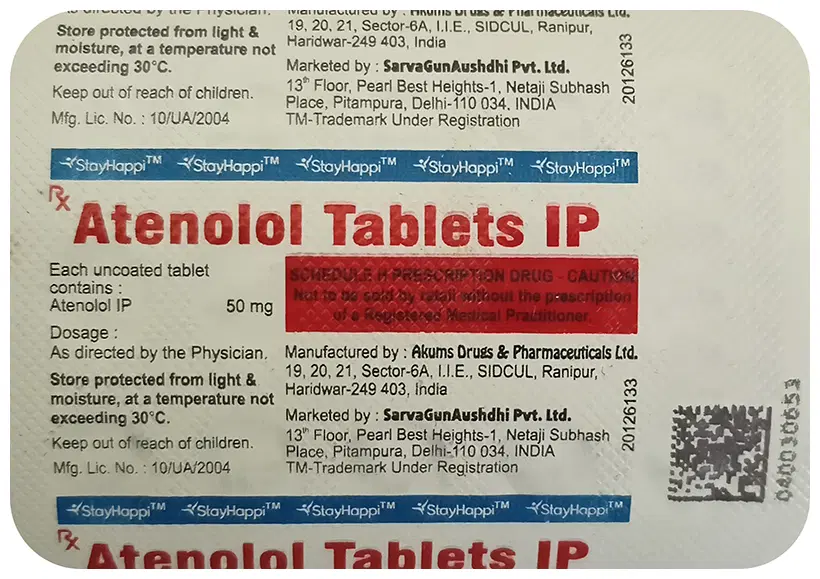Atenolol
Atenolol is a selective beta-blocker medication primarily used for the treatment of hypertension, angina pectoris, and certain types of arrhythmias. It works by slowing down the heart rate and reducing the force with which the heart pumps, subsequently lowering blood pressure.
Originally developed by the British pharmaceutical company, Imperial Chemical Industries (ICI), Atenolol was first introduced in the market under the brand name Tenormin. However, it is now available as a generic drug.
Atenolol, being a selective beta-blocker, has a greater impact on beta-1 receptors in the heart compared to beta-2 receptors in the lungs and blood vessels. As a result, it causes minimal effects on bronchial muscle relaxation or blood vessel dilation, unlike non-selective beta-blockers. This makes Atenolol especially useful for patients with asthma, chronic obstructive pulmonary disease (COPD), or peripheral arterial disease.
While Atenolol is generally considered a safe and effective medication, it should be used with caution in certain patient populations. These include those with severe heart block, heart failure, bradycardia, or significant hepatic or renal impairments. It is also essential to gradually titrate the dosage of Atenolol to avoid severe hypotension and dizziness.
The safety and efficacy of Atenolol in pregnant and lactating women, as well as in children, are not well established. Therefore, its use in these populations should be carefully assessed and monitored by healthcare professionals.

Showing 1–12 of 175 results
Showing 1–12 of 175 results

